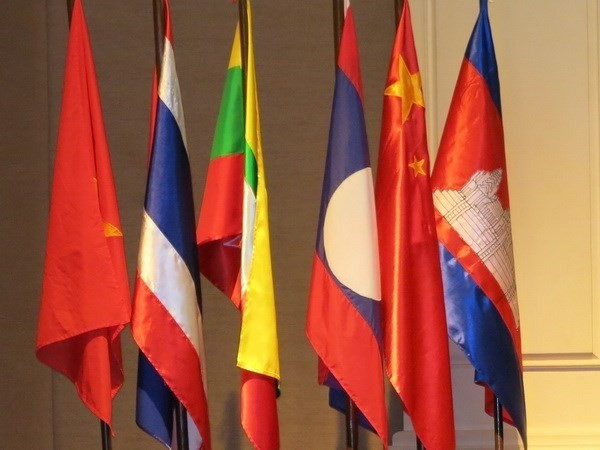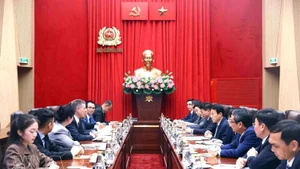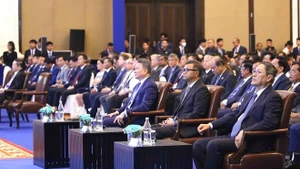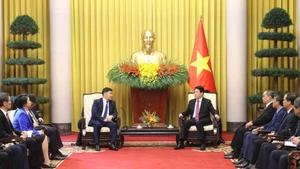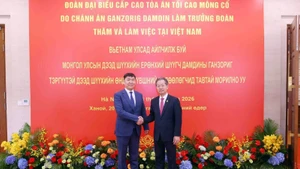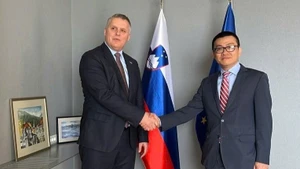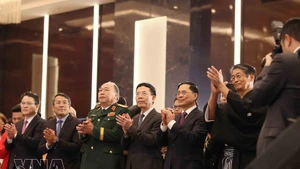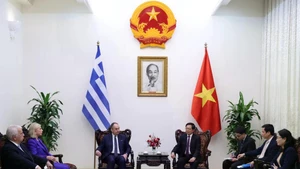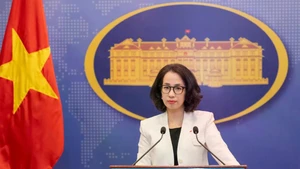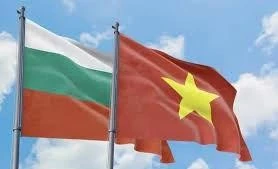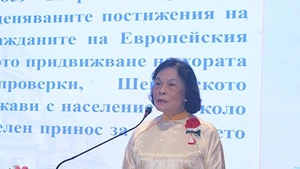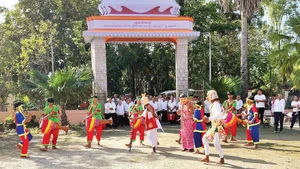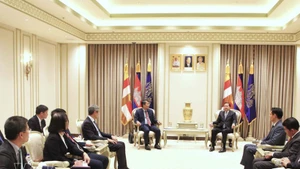On the occasion, the Vietnamese leader will also attend the 10th Ayeyarwady-Chao Phraya-Mekong Economic Cooperation Strategy (ACMECS) Summit and the 11th Cambodia-Laos-Myanmar-Vietnam (CLMV) Cooperation Summit, as well as participate in a number of working sessions in China.
These are the regular summits of the GMS, ACMECS and CLMV, and also the first direct high-level activities of these mechanisms since 2018.
The GMS programme, supported by the Asian Development Bank (ADB), was established in 1992 with the participation of Cambodia, Laos, Myanmar, Thailand, Vietnam and China.
GMS promotes cooperation across three pillars of connectivity, community and competitiveness, and in 10 areas, namely agriculture, energy, environment, health, human resources, information technology, tourism, transport, trade competitiveness and urban development.
After more than thirty years of development, GMS has achieved significant progress in supporting the Mekong subregion to connect infrastructure and develop economic corridors.
The ACMECS mechanism was established at the Bagan Summit in November 2003 on Thailand’s initiative. ACMECS is the only intra-regional cooperation mechanism with full participation of the five Mekong subregion countries: Cambodia, Laos, Myanmar, Thailand and Vietnam.
The objective of ACMECS is to strengthen economic cooperation to leverage advantages and enhance the competitiveness of member countries. Accordingly, ACMECS strives to mobilise resources to implement projects supporting small and medium enterprises, promote cross-border trade, connect soft infrastructure, develop smart skills, and enhance the capacity of healthcare personnel.
The first CLMV Summit was held in November 2004 in the Lao capital of Vientiane within the framework of the 10th ASEAN Summit. With the goal of supporting Cambodia, Laos, Myanmar and Vietnam in narrowing development gaps and integrating into the region’s general development process, CLMV cooperation focuses on six areas: trade and investment, agriculture, industry and energy, transport, tourism and human resource development.
Member countries have recently focused on implementing the CLMV Development Framework, which includes several capacity-building projects and organising trade and investment promotion fairs.
Vietnam always attaches importance to Mekong subregional cooperation mechanisms. In particular, Vietnam considers GMS and ACMECS as strategically significant mechanisms connected with top important partners; and views CLMV as a mechanism to increase the international community’s support and attention to the Mekong subregion’s development.
Within these mechanisms, Vietnam demonstrates active and positive participation and makes responsible contributions to the region’s common interests, enhances subregional cooperation effectiveness, while mobilising external resources for national development.
Prime Minister Pham Minh Chinh’s working trip takes place in the context of continuing complex and unpredictable global and regional situations. Non-traditional security challenges, such as climate change and natural disasters, are having multifaceted impacts on Mekong subregion countries.
In addition to promoting economic development strategies and construction projects on the Mekong River, countries are also strengthening coordination and cooperation through subregional mechanisms to effectively address the challenges.
The working trip also takes place in the context of continuing positive development in Vietnam-China relations, highlighted by recent high-level visits between the leaders of the two countries.
Prime Minister Pham Minh Chinh’s participation in the 8th GMS Summit aims to demonstrate Vietnam’s support for host country China, as well as the desire to strengthen political trust and maintain the development momentum of the Vietnam-China Comprehensive Strategic Cooperative Partnership.
The working trip also aims to affirm Vietnam’s support for Laos in its role as ACMECS Chair; expressing the wish to consolidate solidarity and enhance cooperation effectiveness among the five ACMECS member countries for subregional development in various fields, such as sustainable management of transboundary water resources, responding to climate change and natural disasters, comprehensive regional connectivity, digital transformation and green transformation.
At the 11th CLMV Summit, Vietnam aims to express its desire to continue promoting cooperation with member countries in human resource development, business connectivity, trade and investment facilitation, as well as strengthening ASEAN’s role in subregional cooperation.
Prime Minister Pham Minh Chinh’s working trip aims to continue implementing the policy of the 13th National Party Congress on extensive, comprehensive and effective international integration and enhancing multilateral diplomacy, as well as a conclusion of the Politburo on strategic orientations for Mekong subregional cooperation until 2030.
May the working trip by Prime Minister Pham Minh Chinh be a great success, further affirming Vietnam’s commitment to the GMS, ACMECS and CLMV cooperation mechanisms while demonstrating Vietnam’s central role and responsible contributions in Mekong subregional cooperation.
